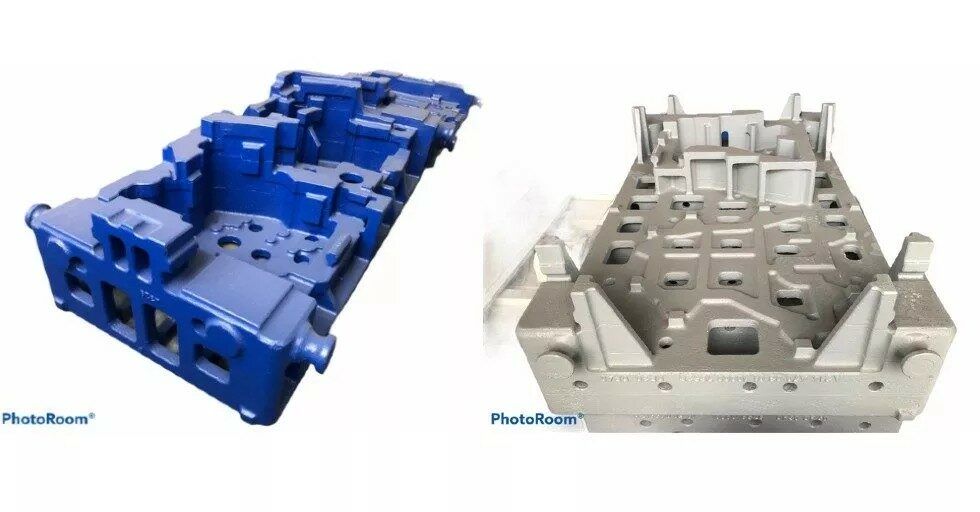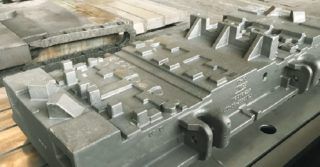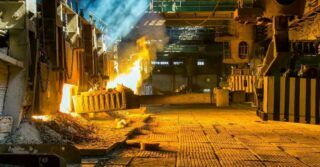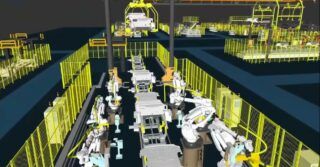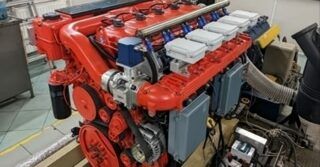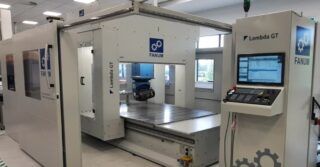Rafamet Foundry is carrying out a research and development project under the Fast Track competition number 1/1.1.1/2020, organised by the National Centre for Research and Development, to develop an innovative technology for the production of large ductile iron castings with special properties using Full Mould technology, dedicated to the production of stamping tools for the automotive sector.
“Eight years after the introduction of Full Mould technology, we have used our extensive experience to develop a concept for its further development. The measures taken are not only a response to the growing expectations of our customers, but also fit into an environmentally friendly and energy-saving production policy, which also allows us to maintain our position among the European leaders in the production of castings using this method,” says Jacek Opiela, Vice President of the Board of Directors, Technical Director of Rafamet Foundry and Managing Director of the project.
“The solutions developed in the project will be applied in the production process of stamping tools for the automotive, engineering, wind energy and railway sectors. As a result of the research work carried out, skills will be acquired that will enable the production of innovative castings weighing up to 18 tonnes using full mould technology, while at the same time improving the energy efficiency of the process. Thus, the implementation of the project and the achievement of the planned results will contribute to the development of production capabilities that go beyond the scale of the domestic market. In turn, the measures taken to optimise the technology and product parameters themselves will enable us to innovate on an international scale,” emphasises Jacek Opiela.
“We are aware that the implementation of the project requires the achievement of ambitious goals, but over the past few years we have managed to create an R&D department and build a strong research team with high scientific potential,” says Jacek Opiela, adding, “The project involves foundry employees from both the industrial and academic environment, supported by the staff of the Foundry Department of the Silesian University of Technology. I believe that the high level of competence of our employees is crucial for the development of the technology, which is why four of our employees are pursuing doctoral studies in the field of materials engineering”.
PRODUCTION OF HEAVY CASTINGS FOR THE AUTOMOTIVE INDUSTRY
Rafał Dojka, head of the R&D department at Rafamet Foundry and project manager, discusses the progress and results of the project:
“We decided to divide the industrial research phase into six stages, in each of which we investigate a fundamental component of full mould technology. We started the research with the development of a moulding material formula that guarantees the use of a high percentage of recycled material while maintaining high strength properties. This allows the self-feeding effect to be maximised in the castings produced without the risk of mould deformation.
The next step was to develop four experimental grades of ductile iron, characterised by higher strength or elongation than the standard grades. By applying a suitably selected charge layout and a two-stage modification process, we were able to produce two grades with increased strength while maintaining the nominal elongation value: GJS-750-2 and GJS-650-3, and two grades with increased elongation while maintaining nominal strength: GJS-700-4 and GJS-600-6. In contrast to SSDI-type cast irons, the alloys developed have a significantly lower ferrite content and a reduced tendency to degenerate graphite precipitation. We are preparing a patent application for the four alloys developed.
To reduce the risk of casting defects and minimise the negative environmental impact of the process, it is necessary to produce a high quality disposable casting pattern. To this end, we analysed nine materials available on the market. The studies, which included measurements of emissions during gasification, machinability and the ability to bond with adhesives, enabled the selection of the optimal materials for the process.
An essential element of the process is the type and thickness of the coating used. Coatings for the full mould process differ significantly from those used in traditional casting technology. Key factors are the need for adequate permeability to ensure the optimum air gap size between the metal stream and the gasified model, the flexibility of the coating to avoid cracking and its low density. We carried out extensive research into the coatings available on the market for the Full Mould and Lost Foam processes and selected three types of coating that would enable us to achieve the required indicators.
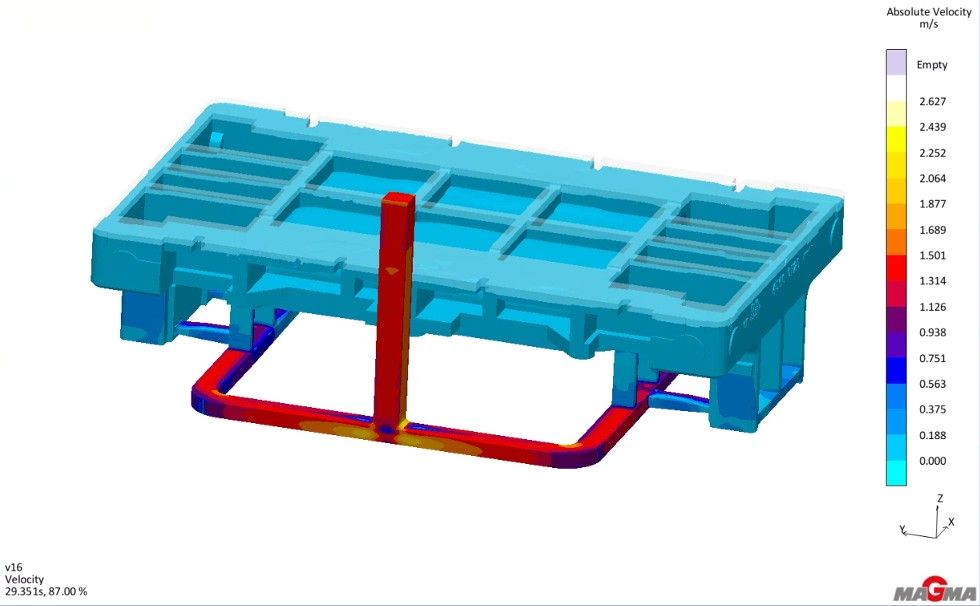
Photo: RAFAMET Foundry
The aim of Stage V was to develop heat treatment or thermochemical treatment processes to achieve high hardness (58 HRC) and resistance to abrasive wear in the alloys developed in Stage II. The properties of the surface layers of test castings produced by induction and laser hardening, gas nitriding, gas carbonitriding and gas carbonitriding with oxidation were compared. A hardening process has been developed which allows a hardness of more than 58 HRC to be achieved while maximising the tribological resistance of the surface layer, which is close to 2 mm thick.
The first five stages of the project have now been completed. All planned milestones have been achieved. Stage VI is currently underway and aims to develop innovative solutions in the design of gating systems for full mould technology. As part of this phase, a device has been constructed to record the actual kinetics of mould filling, enabling the results obtained for the castings produced to be compared with the results of computer simulations of mould filling. This is extremely important because obtaining reliable simulation results for full mould technology requires precise adjustment of its parameters to the specifics of each foundry. The outcome of the research in this phase will also include a support programme.
At the same time, Stage VII of the project has started, which opens the development phase. The ongoing research aims to verify the impact of the use of all the components of the technology developed in the industrial research phase of Stages I-VI on the quality of test castings. The achievement of the planned indicators will allow the start of the final, VIII, phase of the project, in which the developed solutions will be used to produce large-scale stamping tools for the automotive sector.
“The project work has reached a high level of progress, we are achieving the planned indicators and are proceeding according to plan with the installation of the demonstration line necessary for the production of castings in Stage VII. This includes a 12 t/h induction furnace, a mixer-charger and an upgraded pneumatic transport line” says Jacek Opiela.


